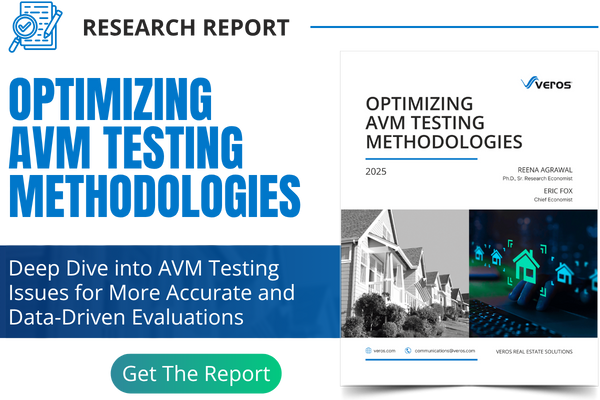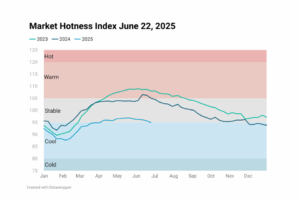Artificial Intelligence (AI) and machine learning have a tremendous impact on today’s society. What seemed to come out of nowhere is now a pivotal aspect of the world as we know it. When looking at this from the perspective of the real estate realm, the question remains just how much of an influence it will have—not only currently but well into the future, as AI remains an early-stage technology with vast potential for growth and refinement.
In terms of the applications of AI in real estate, property valuation is one of the most impactful. Accurate valuations are important for buyers, sellers, and investors. Therefore, traditional valuation methods can prove to be somewhat unreliable at times due to their potential inconsistency and inherent risk of bias. This is where AI enters the equation. Because these tools can analyze vast standardized datasets, they can be an alternative to providing accurate and objective property value assessments.
AI's Role in Automated Valuation Models
One very significant mention in property valuations is Automated Valuation Models (AVMs). In short, they are computer algorithms used to estimate a property’s value. The algorithms gather data from a vast number of sources, compiling all the data to provide an accurate valuation. However, when combined with AI and machine learning, AVMs have more capabilities beyond the simple data that is normally extracted. These additional capabilities can include predictions of future markets, or developments/declines in specific neighborhoods.
This can be extremely beneficial, as you can receive property values that incorporate factors not normally considered. By taking into account things like future market changes, AVMs, paired with the power of AI, reach entirely new levels of accuracy.
Advantages of AI in Real Estate
- Speed: With the help of AI, valuations can be generated in seconds or minutes, which is extremely effective in obtaining efficient valuations compared to traditional methods, which can take days, or even weeks in some cases. With AI, more property valuations can be completed, without sacrificing important details.
- Increased Accuracy: AI algorithms cover large sets of data, including historical data about the property, current and previous market trends, and characteristics of the valued property, as well as characteristics of surrounding properties. With all of this included, valuations reach a new level of precision with the help of AI.
- Adaptive Capabilities: AI can instantly adjust to any changes in the market, thus improving the accuracy of a valuation. For example, fluctuations in interest rates or population size in a given area can result in different valuations, which AI can quickly adapt to.
Conclusion
With the advancements in technology, and specifically AI, we may see a significant reduction in reliance on traditional valuation methods. Although the conventional method of valuations may still be very helpful in some cases, like deciphering unique property features or valuing luxury or remote properties, the upsides of technology and AI in valuation continue to grow as the years pass by. What started as a shock to most people around the world has become an extremely beneficial tool in all aspects of life, including the real estate industry. With speed, accuracy, and adaptability improvements, AI is making strides in property valuations.
As AI grows and evolves, we can expect even greater precision and sophistication in property valuation. Nonetheless, while AI enhances valuation accuracy, human expertise in interpreting the data remains of the utmost importance.

Matthew Bozorgi
Matthew Bozorgi is a dynamic Marketing Communications Specialist, honing his expertise in content creation, social media strategy, campaign execution, and designing digital marketing creatives at Veros Real Estate Solutions (Veros). Passionate about brand messaging, he is learning to craft campaigns that connect companies with their audiences across various platforms. Matthew thrives in writing engaging content, managing media relations, coordinating events, and analyzing campaign performance.










